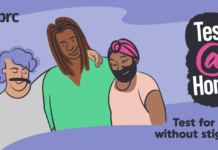
On the heels of being chosen as one of the recipients of the Centre for Addiction and Mental Health’s Transforming Lives Award in 2010, I really thought that things were beginning to go my way. My life in Toronto had sufficiently stabilized to the point of me being able to continue my studies at both George Brown College and Ryerson University, and I dug deeper to find common ground with family members and connected with friends and communities I had deep ties with.
I was on a roll and there was a plan to continue to build on these successes. Within months however, my mental state began to show signs of distress as circumstances led me to a time without a fixed address. Here is my story (names have been changed).
Housing is expensive in Toronto. Having moved from a small town to the Big City, I held a variety of jobs, from working as a professional musician to hustling as a telemarketer to working part time for a very reputable firm with benefits, but these proved not enough to be able to secure an apartment. I ended up in shared accommodation, an arrangement that was fine; it was clean, secure, convenient… and inexpensive.
I had been living with Trevor for about a year, platonically and peaceably, when I asked him if I could be listed on the lease to give me some degree of legal protection. He refused my request, and I, not wishing to cause ill-will, dropped the subject. After all, we had co-habitated for a year without as much as a grumble. What could possibly go wrong?
Trevor had been seeing Leonard for about four months when I received word that Leonard was to be moving in, and I needed to find a place in eight weeks. Sadness relented to anger in quick succession; I would have to hustle to find clean, safe, and comfortable lodging.
I can be quite resourceful at times of crisis, but when eight weeks until my exit date became four, desperate panic took over. In my case, credit and cash were in short supply, and my employment insurance was running out.
Housing, part of physical environment, is one of the social determinants of health that predicts how successful a person will be in navigating greater societal forces. Income, social status, social networks, education, coping skills – each play a vital role in ensuring one’s health, and more often than not, these factors were not playing in my favour. The circle of friends to which I belonged had moved on with their lives with partners, homes, and families, leaving me with a small group of people facing similar challenges.
So began another descent into what would become two years of hell, where having a network of people I could couchsurf with turned into occasional nights of sleeping outside when no one could help.
Most humbling of all was the experience of being under a bridge, rolling suitcase in one hand, duffel bag in the other. The most humiliating was to ask and be denied a ride on the Queen streetcar because it was raining and I had nowhere to go.
It would be dishonest to say that living rough was my lifestyle for two years. I did have (and still do have) a dear friend, Anna, who provided food, shelter, and money when I really needed it. But there were times when she was simply unavailable, and I had to find my own way.
It’s funny how the face of the city changes after dark; there is indeed an underworld where men and women trade whatever they have to survive the streets. Coffee shops become change rooms and (un)safe injection sites; bathhouses and sex shops provide a temporary shelter for those looking for a little bit of affection and company in an otherwise preoccupied world. Most important, though is to have a tacit commitment to keep moving, it is when you are at rest that you are most vulnerable to being robbed, harassed, or somehow targeted.
Homelessness and mental health are inexorably linked. Both are insidious, and the behaviours of one often, but not always, begets the other; substance use and addiction; legal and justice issues; access to support.
There is reason for hope, however. What got me through this very dark period was Anna’s encouragement and belief in me, even when I had given up on myself and when those closest to me chose to look the other way. Hope and success is possible with dogged determination and saint-like patience.
It’s been almost 18 months since I was at my lowest point, and while I am very occasionally haunted by some unpleasant memories, I remain grateful for this odyssey which has made my narrative that much more extraordinary. The line that separates those who have from those who haven’t isn’t necessarily measured monetarily. I revel in this wealth, and wish for others to live boldly so I can hear their stories and know of their unintended transformations.
By Dexter Roberts, GGN Contributor






I really lived reading this especially at this time of year. I have been trying to be someone’s “Anna” who is in the same situation and it’s so good to know people like that are out there. It’s sometimes just fear that blocks us from extending a hand when we can.
What a brave column! Thank you Mr. Roberts. You have educated me today. Sharing.
The world can certainly use a few more “Annas”, and really, without having someone to advocate for you, the long process of rebuilding one’s life becomes longer and is interrupted by forces that are external to our control.
Being an “Anna” is also a very trying process and there were not infrequent exchanges of harsh words. Misunderstandings, confusion, fear…all come out in unexpected ways and can test a friendship. Fortunately, Anna realized that I was a trustworthy person with a unfortunate litany of bad luck.
Thanks for reading my article. It is nice to know that my article was read!
Cheers,
dr